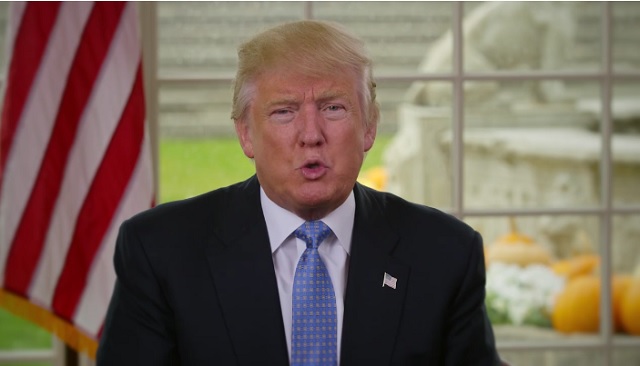
New York, United States | AFP | A New York judge sought to avoid a testy tech-age free-speech showdown between Donald Trump and people blocked from his Twitter account Thursday, proposing the president just mute rather than block them.
In a unique case given rise by Trump’s relentless use of Twitter to communicate to the American public, Judge Naomi Reice Buchwald said she was not ready to decide whether people have a right to complain, protest and insult in the comments section of his Twitter feed.
Seven people from around the country — including a comedian, a professor, a policeman and a singer — joined together in a lawsuit after Trump blocked them from seeing and commenting on his tweets.
Trump’s tweets, which cover everything from public policy to what he sees on television and attacks on Democrats, are seen by millions of people and often draw tens of thousands of comments each.
The seven plaintiffs, though, are among “a few hundred” blocked by Trump, according to Ujala Sehgal, communications director at the Knight First Amendment Institute at Columbia University, which also joined the suit.
Philip Cohen, a sociology professor at the University of Maryland, said he was summarily blocked in June 2017 after he reacted to a Trump tweet by replying with a photo of the president superimposed with the words “Corrupt Incompetent Authoritarian”.
“At first I was kind of proud, like ‘oh he cares about me,'” Cohen said.
“But then very quickly I realized that a lot fewer people were seeing my tweets and my political efficacy, my ability to speak to my fellow citizens, was impaired by that. And I think that’s not the way our government should act.”
Nicholas Pappas, a New York comedian who was blocked by Trump last year for his critical comments on immigration policy, told the court that the result was that comments on the president’s tweets were mostly positive.
It’s important that critics’ opinions are also represented, he said.
The case raised some fundamental constitutional issues, but the use of Twitter by the president gave them a new twist.

Michael Baer, a Justice Department lawyer defending Trump’s control over his account, compared the blocking to a politician, during a political convention, being free to walk away from a protestor rather than being forced to listen to them.
He said under law the court does not have the power to force Trump to unblock his critics.
– ‘Free-speech violation’ –
Katie Fallow, an attorney for the Knight First Amendment Institute, argued that because Trump uses Twitter in an official capacity — communicating policy for example — “blocking people simply because they criticize him is viewpoint discrimination that violates the First Amendment,” the US Constitution’s guarantee of free speech.
“What we’re seeking is having President Trump stop blocking our plaintiffs and stop blocking people because of viewpoint,” she said.
Buchwald did not tip her hand on where she stands, but warned both sides they could lose the case.
But she offered a simple alternative that would resolve the case, if not the legal question.
“Instead of blocking, he mutes them,” she suggested — meaning Trump simply wouldn’t see their responses.
“This way he does not affect the interaction of the other constituents,” she said.
“If there is a settlement that serves the interests of both parties, it is often considered the wiser way to go.”
It was not clear whether Trump himself would agree — the critical comments would remain visible to others. But lawyers on both sides said they could consider that.
 The Independent Uganda: You get the Truth we Pay the Price
The Independent Uganda: You get the Truth we Pay the Price





